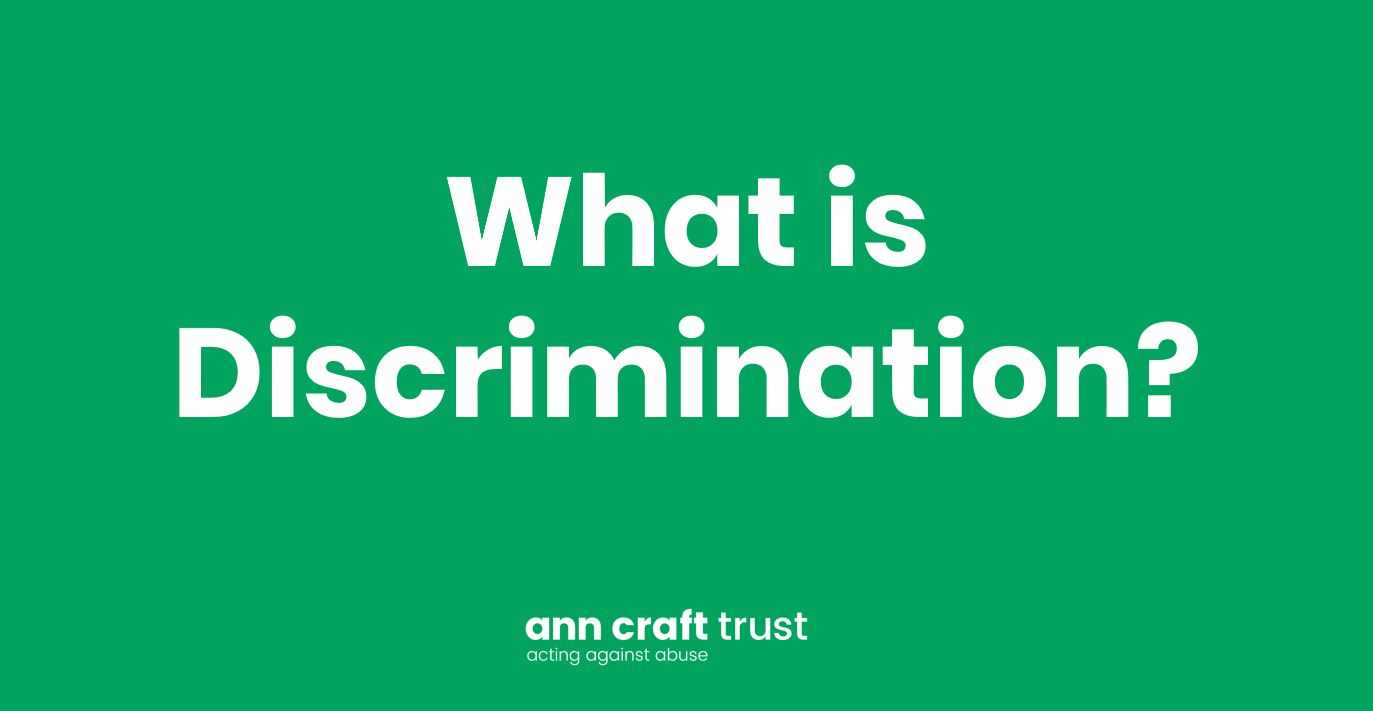
Discrimination is abuse that focuses on a difference or perceived difference.
This may involve race, gender, disability, or any of the protected characteristics of the Equality Act.
Examples of discriminatory abuse might involve harassment, slurs, or similar treatment based on the difference or perceived difference.
Discrimination and UK Law
In UK law, it’s illegal to discriminate against anyone based on these protected characteristics:
- Age
- Gender reassignment
- Marriage status (including civil partnerships)
- Being pregnant or on maternity leave
- Disability
- Race (including skin colour, nationality, or a person’s ethnic or national origin)
- Religious belief
- Sex, and sexual orientation
People are legally protected from discrimination in the following settings:
- At work and in education
- As a consumer (i.e. while shopping)
- When using public services
- When buying or renting property
- As a member or guest of a private club or organisation.
You’re also protected from discrimination if you’re associated with someone who has a protected characteristic, for example a family member or friend. The law is also on your side if you’ve complained about discrimination, or supported someone else’s claim.
What Does Discriminatory Abuse Look Like?
Discrimination may take on a number of forms. Here are some examples:
- Direct Discrimination. Treating someone with a protected characteristic less favourably than others.
- Indirect Discrimination. Putting rules or arrangements in place that apply to everyone, but that put someone with a protected characteristic at an unfair disadvantage.
- Harassment. Unwanted behaviour linked to a protected characteristic that violates someone’s dignity or creates a hostile environment for them.
- Victimisation. Treating someone unfairly because they’ve complained about discrimination or harassment.
Discrimination can happen at work, on the streets, or even in an environment that’s supposed to be “safe”, such as a school or a care home.
Discrimination and Disability
People with disabilities have exactly the same rights as everyone else. So UK employers are legally required to make “reasonable adjustments” to help any workers or applicants with disabilities.
These reasonable adjustments may include:
- Application forms (for example, providing forms in Braille or audio formats)
- Aptitude tests (for example giving extra time to complete the tests)
- Interview arrangements (such as providing wheelchair access or communicator support)
- Making sure the workplace has the right facilities and equipment for workers with disabilities
- Terms of employment, including pay
- Work-related benefits, such as access to recreation or refreshment facilities
How to Deal With Discriminatory Abuse
If you or someone you know faces discrimination at work based on their disability, your first port of call should be to sort out the issue informally. So talk to the employer directly. And if you can’t reach a resolution this way, contact a third party such as Citizens Advice.
The process for dealing with other forms of discriminatory abuse should be similar. If you want to make a complaint, you should first approach directly the person responsible for the discrimination. You may want to use an impartial mediator to help you settle the dispute. And if this approach doesn’t get you anywhere, it’s time to escalate things.
If you or someone close to you has been a victim of discrimination based on a disability, we can advise you on where to find the support you need. Call us on 0115 951 5400.
